Michael Barrymore: How the British TV king lost his crown
- Published
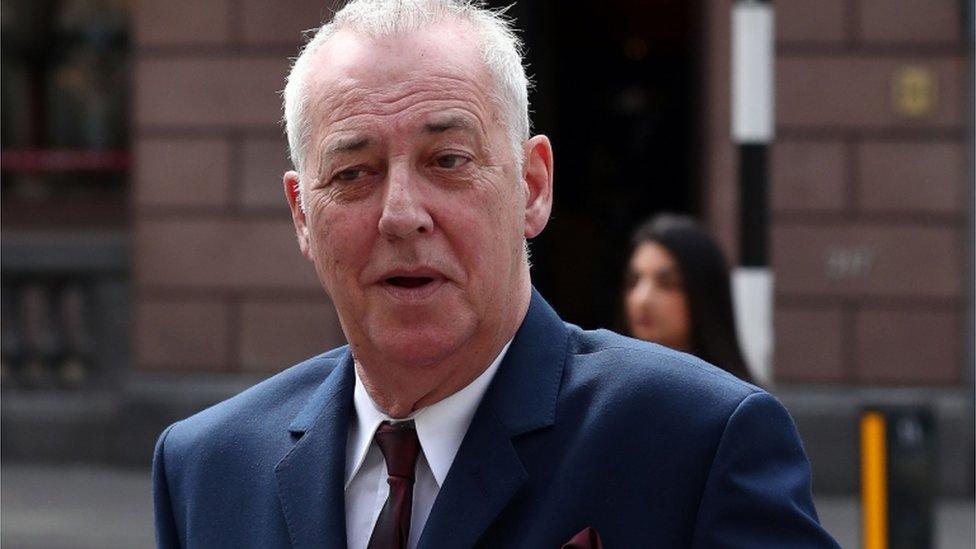
Former TV presenter Michael Barrymore has faced a lengthy court battle for damages
Michael Barrymore has been awarded damages following a lengthy court battle over his arrest on suspicion of rape and murder. Although the sum will be decided at a later date, the High Court ruling is the latest twist in a case that has hung over the former TV presenter since 2001, when a man was found dead at his home.
In the 1980s and 1990s, the king of British television was a zany, larger-than-life London lad who ruled supreme with shows like Strike It Lucky, My Kind Of People, and a self-titled variety show.
Barrymore, now 65, was loved by audiences for his energy and irreverence.
Having been a Redcoat at Butlins, he moved into West End theatre shows before winning TV talent show New Faces in 1979.
His wife, Cheryl, was the mastermind behind the career of the man whose birth name is Michael Parker. Within years he rose to fame through appearances on Blankety Blank and his own sketch show.
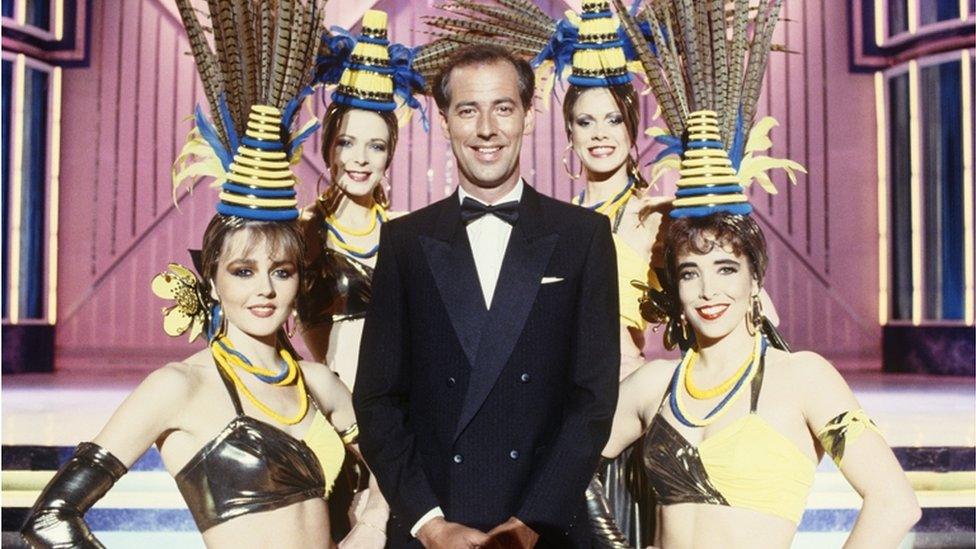
The TV funnyman grew in popularity and prominence during the 1980s
Strike It Lucky came calling in 1986. The gameshow, which ran until 1999, saw Barrymore chat to quirky contestants and guide them through the questions.
Its success earned the now-prime time star his own light entertainment show, Barrymore, in which he would interview guests and perform comedy routines.
He was a highly bankable presenter - Strike It Lucky was one of the most watched shows on British TV in the late 1980s - and was paid handsomely for his work.
In 1995, after years of rumours, he came out as gay and left the home he shared with his wife.
His career took a downturn when figures slumped on his variety shows, but he went on to present other programmes such as My Kind of Music and Kids Do the Funniest Things.
But away from the cameras, Barrymore's personal life was in disarray.
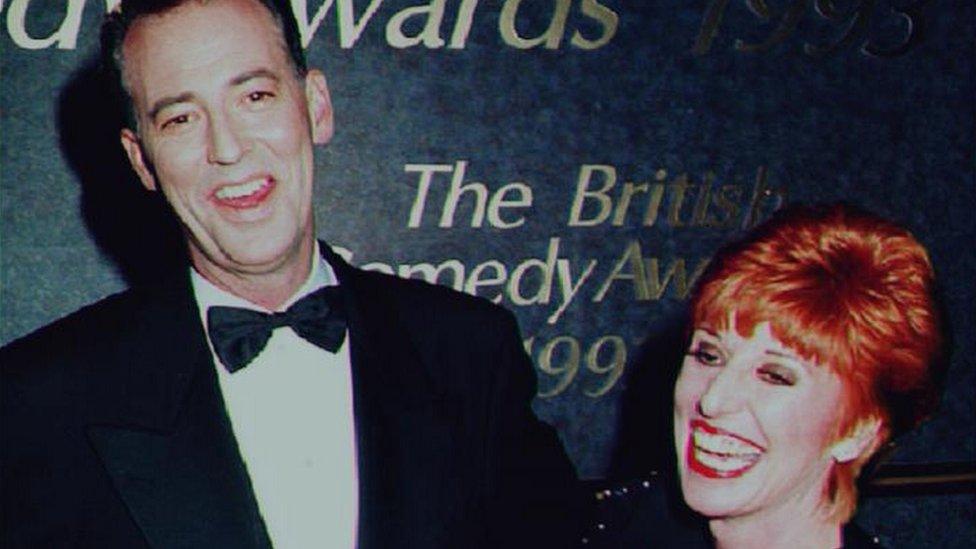
Barrymore's marriage ended in the mid-90s
He was battling drink and drug addictions, and in 2000 was warned by police after drugs were found in a hotel room he was using.
But far worse was to come. On 31 March 2001, the body of a butcher called Stuart Lubbock was found floating in the swimming pool at Barrymore's home in Roydon, Essex.
He had been among a group of people who had gone back to Barrymore's house following a night out in nearby Harlow.
In the very early hours of the morning, his body - clad in just his boxer shots - was spotted at the bottom of the pool by a partygoer.
Other guests pulled him out, and an ambulance was called.
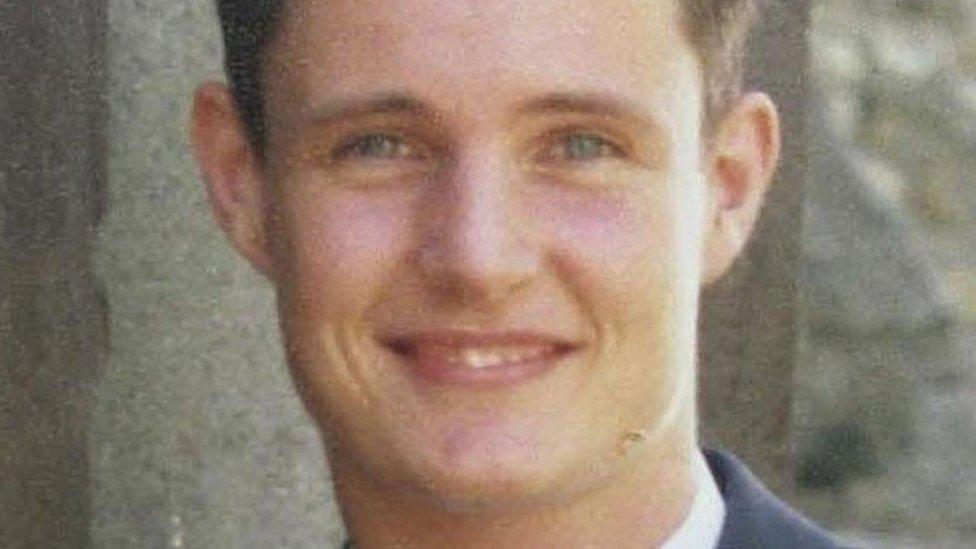
Stuart Lubbock was found dead in Michael Barrymore's swimming pool in 2001
Over the coming months, several post-mortem examinations were carried out.
Mr Lubbock's bloodstream was found to have contained ecstasy, cocaine and alcohol.
He was also found to have severe internal injuries indicating he had been the victim of a sexual assault.
Police initially said he had died from drowning, but subsequent examinations of his body by pathologists found there was "no unequivocal evidence" that this was the case.
At the time, Barrymore was cautioned for drugs offences, but no-one was ever charged in connection with what happened to Mr Lubbock.
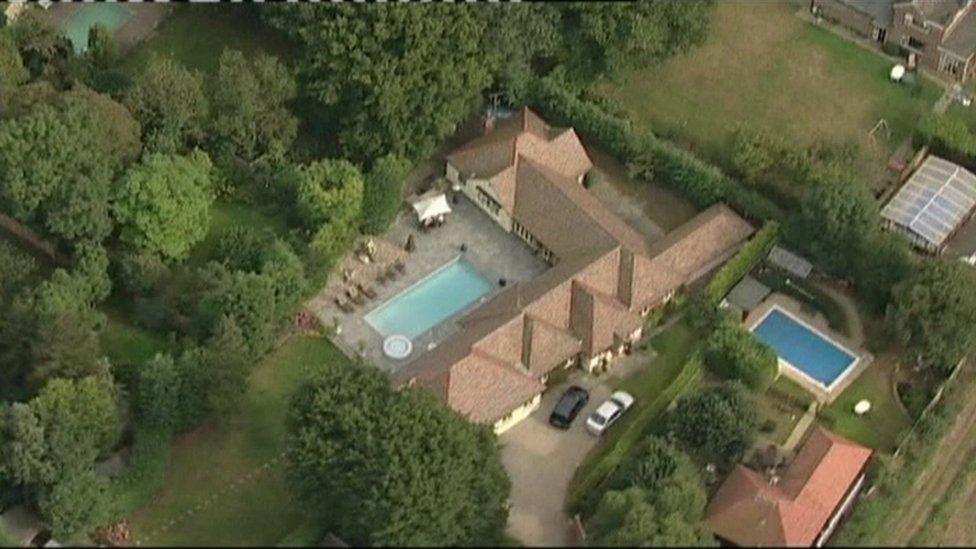
Barrymore's Essex home became the centre of inquiries into how Stuart Lubbock died
In 2002, an inquest into his death recorded an open verdict. Barrymore gave evidence but refused to answer questions over allegations that he gave Mr Lubbock cocaine in the hours before his body was found.
Police said they had been left "frustrated" by the lack of evidence from witnesses, and that the investigation had been "very problematic".
For months, the TV star's face had been splashed all over the papers in connection with what happened to Mr Lubbock.
Unsurprisingly, the publicity scared off producers, and, in the same year, ITV announced it had no future plans to commission shows with Barrymore.
Over the following years, the entertainer made comeback attempts, moved to New Zealand, and filed for voluntary bankruptcy over an "unexpected" £1.4m tax bill. He appeared on Celebrity Big Brother in 2006, triggering speculation his career might be about to take off again.
But in 2007, he was arrested on suspicion of raping and murdering Mr Lubbock.
Police had launched a new inquiry into the death the year before, having conducted a review of the original investigation.
The force said as part of that inquiry, new evidence had emerged, prompting the arrest of Barrymore and two other men.
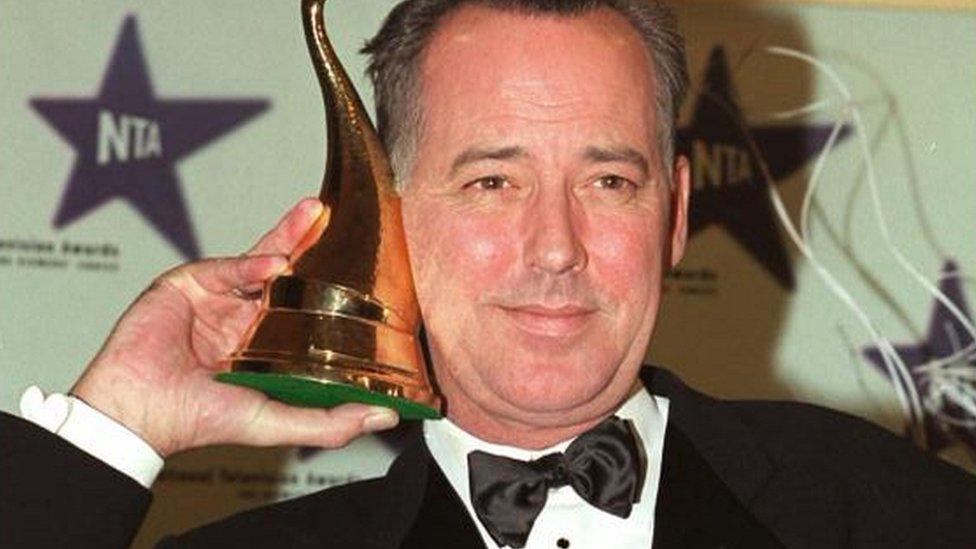
Barrymore, pictured winning a National Television Award in 1999, said his unlawful arrest in 2007 destroyed his career
The process of arresting the entertainer did not go as planned, when the police officer designated to make the arrest, Det Con Sue Jenkins, was delayed.
Instead, an officer who had been doing covert surveillance at the property where Barrymore was staying carried it out. This meant the arrest was unlawful, because the arresting officer had not been fully briefed.
A few weeks later, the Crown Prosecution Service announced there was insufficient evidence to bring any charges.
But the case was not over: in 2009, the Independent Police Complaints Commission (IPCC), which had been investigating the case, upheld six of 36 complaints and allegations made by Mr Lubbock's father Terry.
He had never stopped fighting to find out the truth about what happened to his son, attempting to bring private prosecutions and calling for a fresh inquest into the death.
When a decade had passed since the events at Barrymore's home, police made a new appeal for information, but no further progress was made.
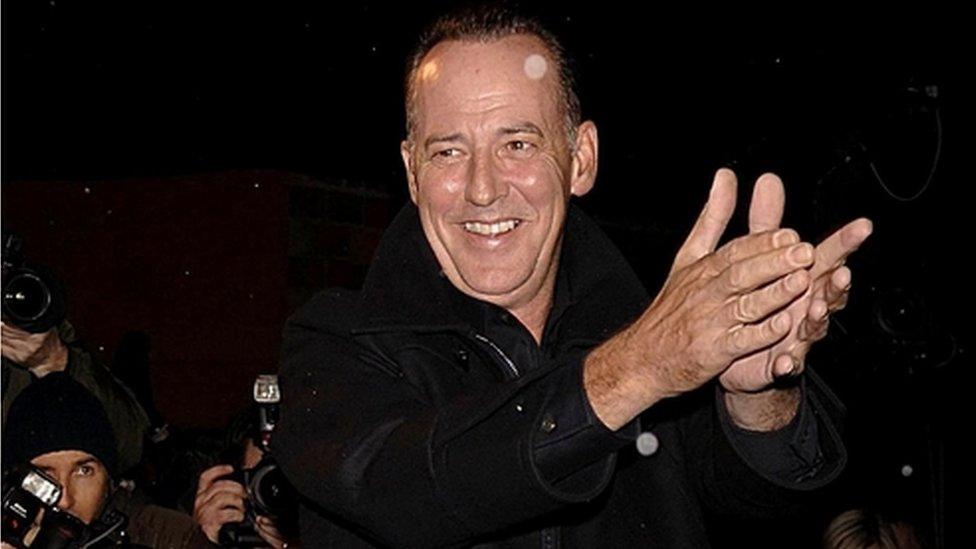
The entertainer came second in Celebrity Big Brother in 2006
In April 2013, Barrymore decided to take action against Essex Police, lodging a damages claim at the High Court for unlawful arrest and false imprisonment.
Barrymore's lawyers said police had not had reasonable grounds for suspecting him of the rape or murder of Mr Lubbock, and the arrest was unlawful and "wholly disproportionate and unreasonable".
Their court documents also said Barrymore "suffered loss and damage, namely distress, shock, anxiety and damage to his reputation".
He has also claimed his career suffered because of the police handling of the case.
For years, he had been hinting at comebacks - even as recently as March this year, when he announced on Twitter he was filming a new sitcom.
As well as that, a new musical - More, More, More - is set to chart the rise and fall of his career. Terry Lubbock has reportedly described the musical as "sick and depraved".
In October last year, when police admitted the arrest was unlawful, Barrymore took to Twitter, writing: "As much as I can say for the minute is 'justice'."
The issue of whether the arrest was reasonable or not was at the heart of the issue. At the Royal Courts of Justice, Essex Police argued the arrest was reasonable, and that Barrymore had suffered no loss as a result of the unlawful arrest because he would have been arrested in any event.
After four years of hearings, and weeks of consideration by judge Mr Justice Stuart-Smith, a decision has finally been made.
What the ruling means for Barrymore's future as an entertainer remains to be seen.